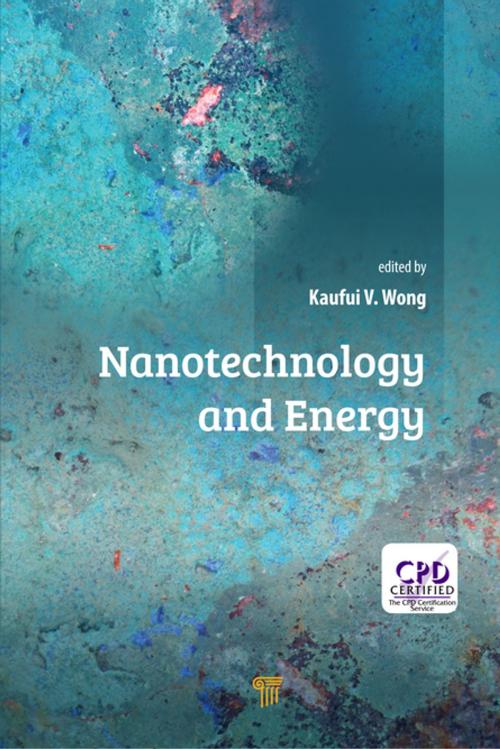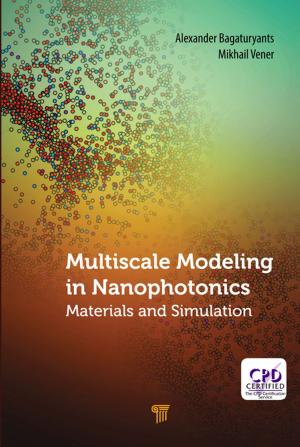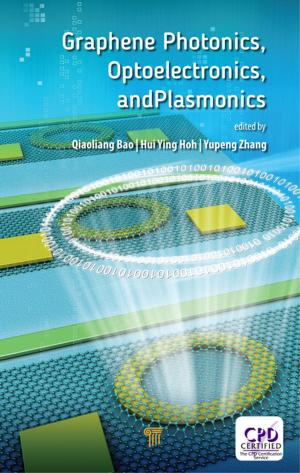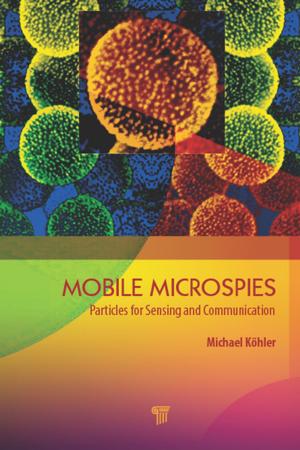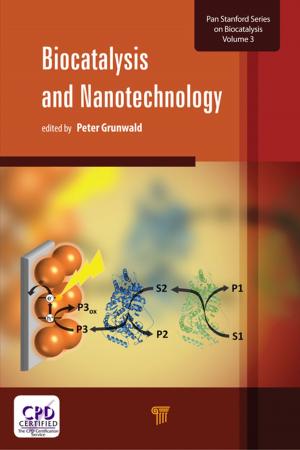| Author: | Kaufui V. Wong | ISBN: | 9781351671576 |
| Publisher: | Jenny Stanford Publishing | Publication: | October 3, 2017 |
| Imprint: | Jenny Stanford Publishing | Language: | English |
| Author: | Kaufui V. Wong |
| ISBN: | 9781351671576 |
| Publisher: | Jenny Stanford Publishing |
| Publication: | October 3, 2017 |
| Imprint: | Jenny Stanford Publishing |
| Language: | English |
Nanotechnology is a vibrant research area and a growing industry. The properties of nanoparticles and nanofluids are different from those of macroparticles and macrofluids because the physical and chemical properties are very dissimilar when dimensions are at the nanometer range. The first successes in using nanofluids for cooling were achieved and commercialized for automobiles; hence, this subarea is rather profitable. Other nanotechnology research and developmental areas are cutting edge. The core scientific principles of all nanotechnology applications are based in physics, chemistry, and engineering.
Nanotechnology is not taught in most programs of engineering yet, and this book on nanotechnology and energy includes a discussion of introducing nanotechnology to the curricula of engineering students. The book also introduces significant current research topics in nanoscience and nanotechnology. It is a textbook for advanced undergraduate- and graduate-level students of nanotechnology, as well as a useful reference book for researchers and professional engineers working in the fields of macromolecular science, nanotechnology, and chemistry, especially those with an interest in energy and the environment, and the automotive industry.
Nanotechnology is a vibrant research area and a growing industry. The properties of nanoparticles and nanofluids are different from those of macroparticles and macrofluids because the physical and chemical properties are very dissimilar when dimensions are at the nanometer range. The first successes in using nanofluids for cooling were achieved and commercialized for automobiles; hence, this subarea is rather profitable. Other nanotechnology research and developmental areas are cutting edge. The core scientific principles of all nanotechnology applications are based in physics, chemistry, and engineering.
Nanotechnology is not taught in most programs of engineering yet, and this book on nanotechnology and energy includes a discussion of introducing nanotechnology to the curricula of engineering students. The book also introduces significant current research topics in nanoscience and nanotechnology. It is a textbook for advanced undergraduate- and graduate-level students of nanotechnology, as well as a useful reference book for researchers and professional engineers working in the fields of macromolecular science, nanotechnology, and chemistry, especially those with an interest in energy and the environment, and the automotive industry.
